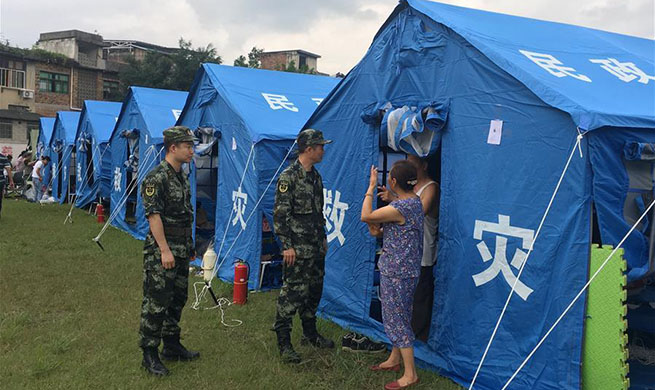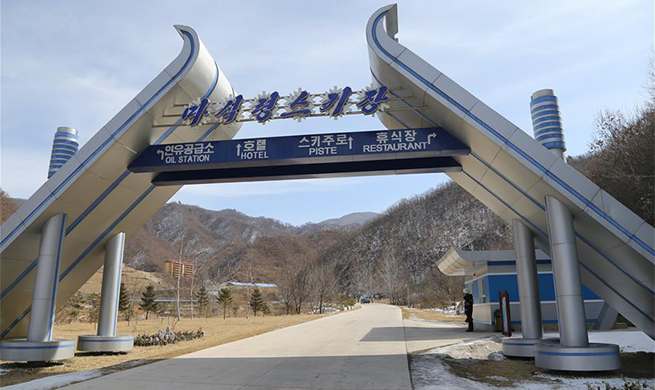ADDIS ABABA, June 19 (Xinhua) -- Ethiopia's first Chinese-built toll road, the Addis Ababa-Adama Expressway, has won acclaim from the Ethiopian government for bringing enormous achievements to Ethiopia's growing economy.
Some five years since the Addis Ababa-Adama Expressway went operational, the project has proved a success in its performance as Ethiopian government officials commended its contribution to the economy.
"The Addis Ababa-Adama Expressway has so far registered enormous achievements, eventually enabling smooth transportation along the busiest section of the Addis Ababa to Djibouti port route," Mustefa Kedir, General Manager of the Ethiopian Toll Roads Enterprise (ETRE) told Xinhua recently.
Kedir disclosed that the Addis Ababa-Adama Expressway has so far served more than 30 million vehicles since it went operational back in September 2014.
The expressway, which is regarded as the first expressway in Ethiopia and East Africa, was partly funded by the Export-Import Bank of China and constructed by the China Communications Construction Company.
Kedir said the expressway is earning a good amount of revenue to the Ethiopian government, having generated close to 1 billion Ethiopian birr (about 35 million U.S. dollars) in revenue during its five years of operation, according to figures from ETRE.
During the 2018 Ethiopian fiscal year alone, the toll road had served more than 7.8 million vehicles, eventually collecting close to 245 million Ethiopian birr, according to figures from ETRE.
As the demand increases, ETRE also expects some 8.8 million vehicles during the current fiscal year, with an expected income of 266 million Ethiopian birr.
Considered as the first-of-its-kind road infrastructure in Ethiopia due to its high quality and standard, the Addis Ababa-Adama Expressway substituted the previously dilapidated road that connects the capital Addis Ababa to Adama - capital of Ethiopia's largest Oromia regional state some 100 km south of Addis Ababa.
The Addis Ababa-Adama Expressway is also considered as Ethiopia's first accomplishment of its cooperation with China in the implementation of the Belt and Road Initiative (BRI).
Amid the rapidly increasing number of trucks and freight vehicles that commute along the road together with Ethiopia's soaring demand for import and export commodities over the past decade, the old two-lane road had been a major concern for the Ethiopian government as well as private businesses.
According to figures from the Ethiopian Roads Authority (ERA), the largely damaged old road was forced to handle in excess of 16,000 vehicles on a daily basis, which ERA said was "way over its maximum capacity."
Kedir, who noted the vital economic importance of expanding toll road infrastructure across Ethiopia, also said that the Ethiopian government has in recent years paid due emphasis to investments in similar road projects.
The ERA on Sunday also inaugurated a second toll road - a 220-km toll road linking Ethiopia's eastern city Dire Dawa to the border town of Dewele neighboring Djibouti.
The asphalt concrete toll road was constructed by Chinese construction firm, CGC Overseas Construction Group Ltd., with 85 percent of financing from the Export-Import Bank of China while the remaining 15 percent was covered by the Ethiopian government.
Djibouti port presently handles about 95 percent of landlocked Ethiopia's export-import trade, and the 5.2 billion Ethiopian birr Dire Dawa-Dewele toll road is expected to play a significant role in augmenting Ethiopia's economic growth by facilitating trade, according to ERA.













